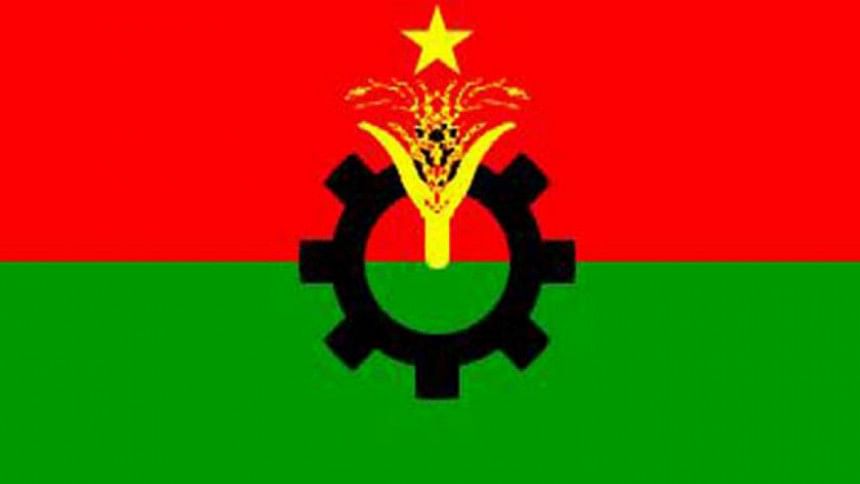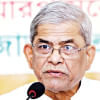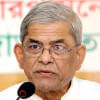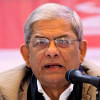BNP wants UN's effective role in polls

The BNP yesterday told the UN that it wants the global body to play an effective role to help hold the upcoming parliamentary elections in Bangladesh in a free and fair manner.
A three-member delegation of the party, led by its Secretary General Mirza Fakhrul Islam Alamgir, held a meeting with UN Under-Secretary-General for Political Affairs Rosemary A DiCarlo at the UN headquarters, said party sources.
In the one-hour meeting, the delegation briefed the UN high-up about the party chairperson's imprisonment, and overall political and human rights situation in Bangladesh.
The BNP leaders also wanted the UN to play a role in “overcoming the ongoing political crisis in Bangladesh,” said the sources.
Fakhrul was accompanied by assistant international affairs secretary Humayun Kabir and executive committee member Tabith Awal. Four other UN high officials were also present there.
The BNP secretary general later told the media that they discussed the upcoming national election, violation of human rights and repression on opposition leaders and activists.
BNP sources said the delegation gave a written statement and some paper clippings to the UN.
The UN officials told the BNP leaders that the incidents of human rights violation in Bangladesh came in UN reports and that it was gathering information on the recent incidents, according to the sources.
The BNP delegation was likely to hold meetings with high officials of the US State Department.
The three party leaders will fly to London from the US to meet acting BNP chairman Tarique Rahman. They had left for New York on Tuesday night.
A number of diplomats said there was nothing wrong with the BNP talking to the UN.
Political parties, especially the opposition, seek support or help for a peaceful election, sending of observers and other electoral help, one of them said.
BNP standing committee member Khandakar Mosharraf Hossain told this newspaper that the UN was concerned about the country's political situation and the parliamentary elections.
“That's why they invited the BNP as a main opposition to hold talks. United Nations have taken such initiative in 2013 but that attempt failed. Let's see what happens this time,” he said.
Awami League General Secretary Obaidul Quader said, “We won't bow down to any unconstitutional pressure from outside and the polls will be held as per the constitution … The government will provide necessary support to the Election Commission which can perform its duties independently.”
On Fakhrul's trip to New York, he said the BNP has now turned into a “complaining party” and they have proved it, reports BSS.
“We don't have any headache why they [UN] have called Mirza Alamgir … Therefore, we don't want to make any comment now.
“We don't know whether the UN will talk to Prime Minister Sheikh Hasina about the election. They may want a free and fair election … We also want to hold a free, fair and peaceful election.”
On August 24, Mia Seppo, UN resident coordinator and UNDP resident representative in Bangladesh, handed over the invitation to Fakhrul.
A diplomat said there was nothing unusual about BNP leaders meeting the UN secretary general. The UN secretary general is not for any country or any government.
The UN secretary general or his department concerned helps resolve crisis and conflict in a country. Political leaders and civil society members also meet the commonwealth secretary general and talk about their domestic issues, the diplomat said.
Another diplomat told The Daily Star that he does not see anything wrong in BNP meeting officials of the UN since the UN is a neutral body and the Department of Political Affairs' (DPA) mission is there to help prevent and reduce violent conflicts and sustain peace through inclusive political solutions.
Obviously, the UN is not going to do anything at the suggestion or complaint of the BNP but the DPA can play an important role in the election process by providing various electoral assistance and expertise, the diplomat said.
In the past, the UN secretary general sent special envoys, including UN assistant secretary for political affairs Oscar Fernandez-Taranco, to mediate political deadlocks in Bangladesh.
In 2013, ahead of the 10th parliamentary election, the UN chief had asked the leaders of the two major parties to sit for talks.
In 2015, the then UN secretary general Ban Ki-moon wrote to Awami League President Sheikh Hasina and BNP Chairperson Khaleda Zia to sit for talks to end political violence.

 For all latest news, follow The Daily Star's Google News channel.
For all latest news, follow The Daily Star's Google News channel. 








Comments